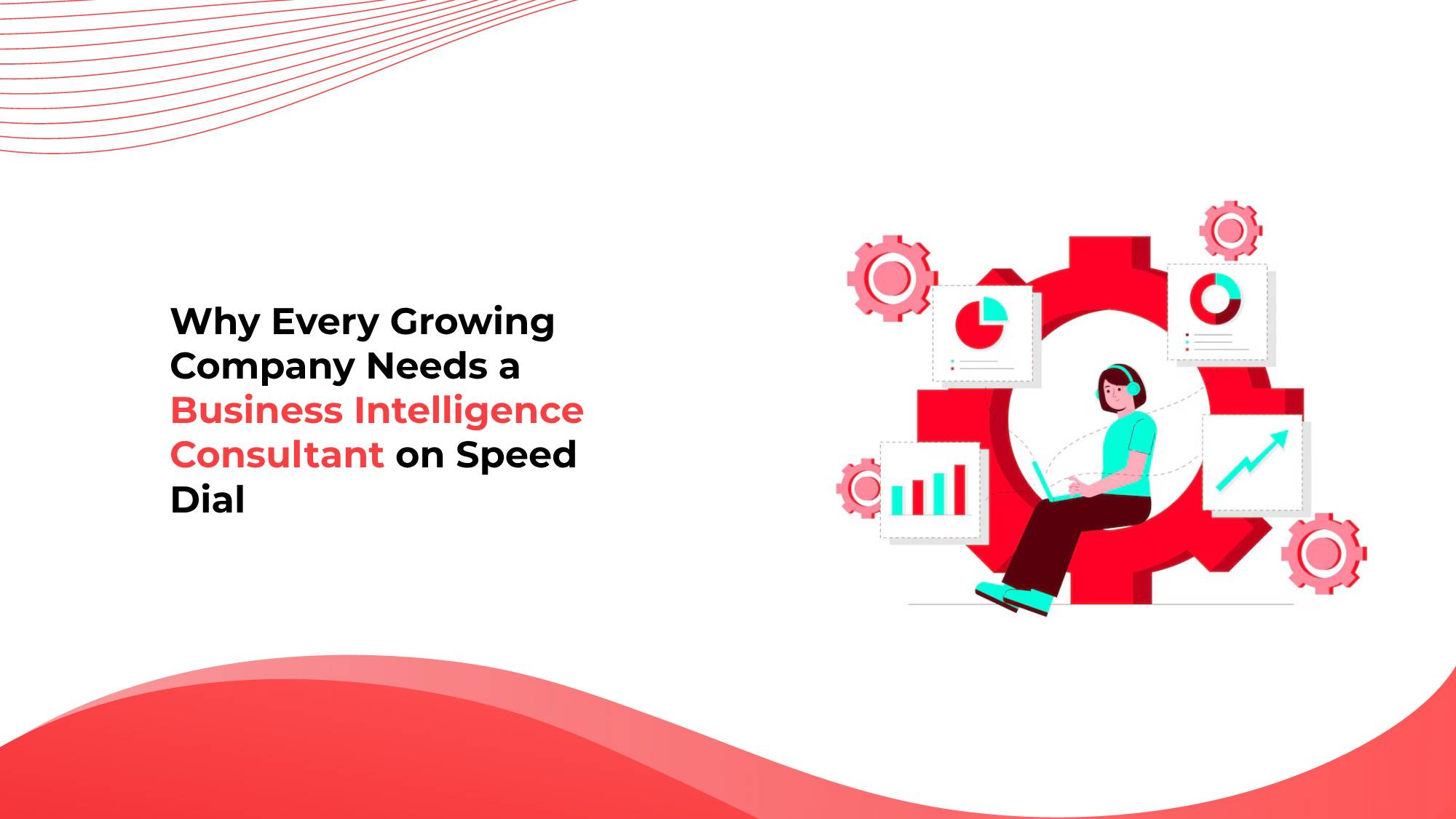Why Every Growing Company Needs a Business Intelligence Consultant on Speed Dial

Introduction
Growth is an exciting phase for any company — it means your product is resonating, your customer base is expanding, and your revenue charts are trending upward. But with that momentum comes complexity. Suddenly, decisions carry more weight, and missteps can be costly. In this high-stakes environment, one of the smartest moves a business can make is to bring a business intelligence consultant into the fold. Not just as a one-time fixer, but as a trusted partner who’s on speed dial, ready to help leaders interpret data, identify opportunities, and guide sustainable growth.
When Growth Demands Smarter Data Decisions
Companies on the path of growth start producing larger amounts of data. They can range from metrics on customer behavior and sales performance to supply chain and marketing results. This may seem manageable at first but patterns become more difficult to see, reports become more fragmented, and decision-making becomes increasingly reactive rather than strategic.
This is when data can either empower or paralyze— depending on what happens next. Without the correct systems in place, teams are drowning trying to make sense of conflicting metrics and chasing lagging indicators. A business intelligence consultant bridges this gap between raw data and business outcomes. Their technical skills are supplemented by a fresh perspective which helps turn chaos into clarity so that leadership can make well-informed, agile decisions.
Real-Time Intelligence: A Game-Changer for Agile Businesses
In the current business environment, it is important to act on information at the right time. Business intelligence consultants have therefore gone beyond preparing monthly reports and embraced real-time dashboards and automated alerts that keep teams aligned and informed.
Suppose you could notice a sudden drop in customer retention as soon as it happened rather than a month later? Or perhaps being able to identify a spike in product demand early enough to optimize inventory and prevent stockouts? This kind of operational agility distinguishes average companies from high performing ones.
Through designing custom solutions that correspond with an organization’s unique KPIs and workflows, BI consultants are enabling companies foresee challenges, grab opportunities, and always be one step ahead of competition. Real-time intelligence does not just improve responsiveness; it builds confidence at all levels of decision-making.
Cost vs. Value: Why Consultants Are Worth Every Penny
When a company starts to grow, they begin to think how much does it cost to hire an external consultant. However, in as far as business intelligence is concerned, the worth is much greater than the price – particularly when compared with operating without any clear and implementable knowledge.
Business intelligence consultants usually guarantee return on investment through minimizing inefficiencies, discovering growth opportunities and stopping expensive errors. They assist businesses in avoiding overspending on needless software packages, rationalizing reporting procedures and aligning data strategies with corporate objectives.
Another advantage of consultants is that they offer flexible engagement models; from short-term audits to long-term partnerships – enabling companies access expertise without carrying the burden of recruiting full-time employees. The right consultant can serve as a strategic resource whose impact lasts long after project completion.
How BI Consultants Help You Scale Sustainably
Scaling a business is not just about doing more but also doing things efficiently, thus the need for Business Intelligence. A competent consultant can help leadership teams comprehend where the business is at present, where it will go and what it needs to do to get there.
For example, if customer acquisition rates are increasing but churn remains high, a BI consultant could delve deep into data to find trends–perhaps incomplete customer onboarding or an underperforming product feature. By employing historical and predictive models, consultants can tell which regions provide the best ROI when a company is expanding into new markets.
They also design systems that grow with the business. Instead of patchwork solutions that break down under pressure, BI consultants implement scalable analytics frameworks — ensuring that reporting and decision-making remain strong as operations become more complex.
What to Look for in a Business Intelligence Consultant
Not every professional who labels themselves a business intelligence consultant will meet the same standard. The true worth of such a hiring decision rests on a blend of technical command and situational awareness. While platform command-SQL queries, Tableau dashboards, Power BI visualizations, azured-inflected ETL pipelines-matters, so do market savvy and strategic foresight.
Stories matter, even in data. A skilled consultant produces more than sterile spreadsheets; he or she narrates the arc of the numbers, aligns insight with corporate mission, and spots the gaps the rest of the room has missed. Crystal-clear, actionable advice for the executive team should follow the analysis, not obscure it.
Collaboration is not an optional extra. A practitioner who mentors analysts, posts quick how-tos, and nudges the workplace toward better data hygiene leaves a legacy that outlives the original engagement. Cultivating that culture often outweighs the immediate deliverables.
Past performance, as any seasoned board member will tell you, is the best predictor of future behavior. References from peer organizations, short written case studies, even a casual follow-up call with a former client can fill in the blanks left by a polished slide deck. Ultimately the ideal partner feels less like a mercenary and more like a colleague-a person genuinely invested in mutual growth and long-term results.
Conclusion
As your business grows, so does the need for smarter, faster, and more reliable decision-making. In this data-rich but often insight-poor environment, having a business intelligence consultant on speed dial is no longer optional — it’s essential. These professionals help bridge the gap between information and execution, giving you the clarity to move forward with confidence and the tools to scale sustainably.
Picking new territories, adding product tiers, or just sorting out which metric is real and which is noise, outside expertise often becomes the difference between hopeful groping and disciplined expansion. In a marketplace that punishes delays, relying on gut feeling alone stops being brave and starts looking reckless.

Ansi ByteCode LLP
Ansi ByteCode LLP has developed an exceptional reputation within the Global IT industry. The company was launched in 2014 and since then, it has been a thriving center with our tagline “Articulate Business With Code”. We presently utilize Microsoft Technologies and proudly hold the status of a Microsoft Solution Partner for Digital & App Innovation, as well as Data & AI. We are a dynamic team comprised of dedicated professionals and continue to expand our capabilities and reach.

